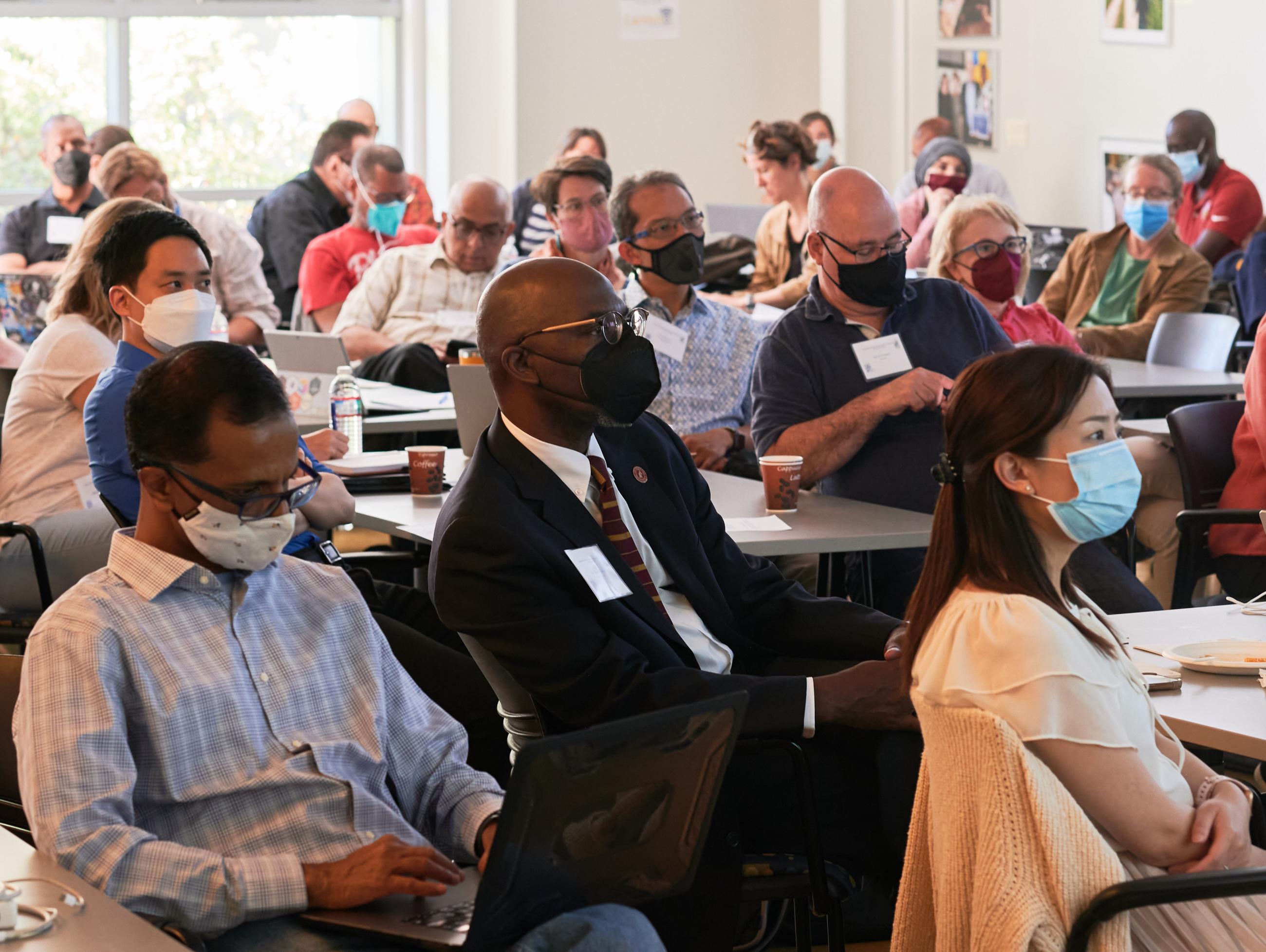UC Berkeley and Tuskegee University Announce Data Science Partnership
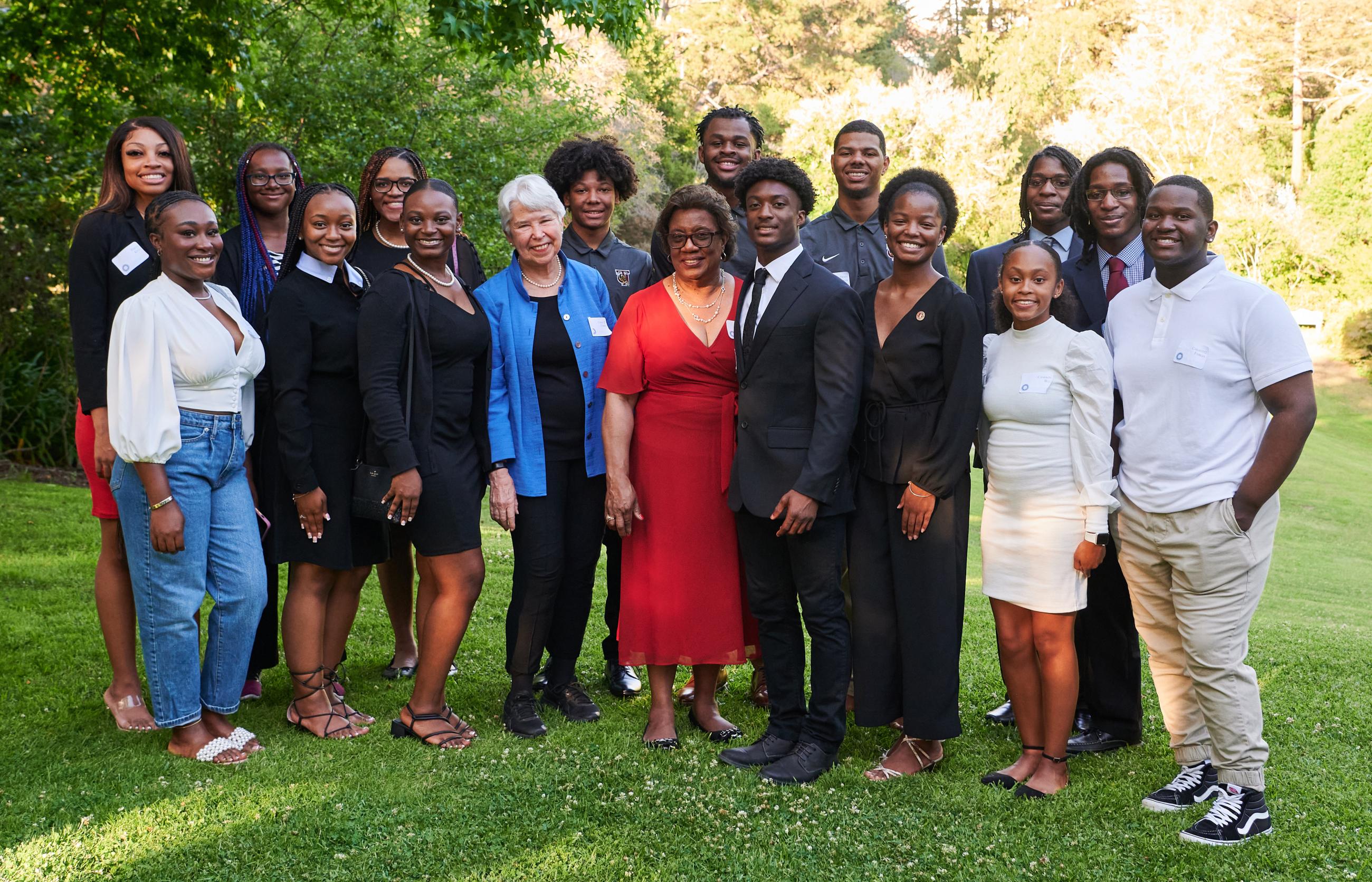
Tuskegee University and UC Berkeley recently announced the Berkeley-Tuskegee Data Science Initiative, a multi-year partnership to develop curriculum and collaborative research opportunities for students and faculty at both institutions.
On June 21, Charlotte Morris, president of Tuskegee University, met with Berkeley Chancellor Carol Christ to discuss the new initiative. In a reception at University House, Chancellor Christ greeted the Tuskegee delegation, including four faculty and staff representatives and the first cohort of Tuskegee Scholars, 13 students in residence at Berkeley for eight weeks to take Data 6 or Data 8 courses.
“We're excited to create our partnership with Tuskegee around the theme of community – community in the classroom, how we teach our students community in our research, how we explore challenging issues and fields at the intersection of data science and society and community at the university level between UC Berkeley and Tuskegee University,” said Chancellor Christ.
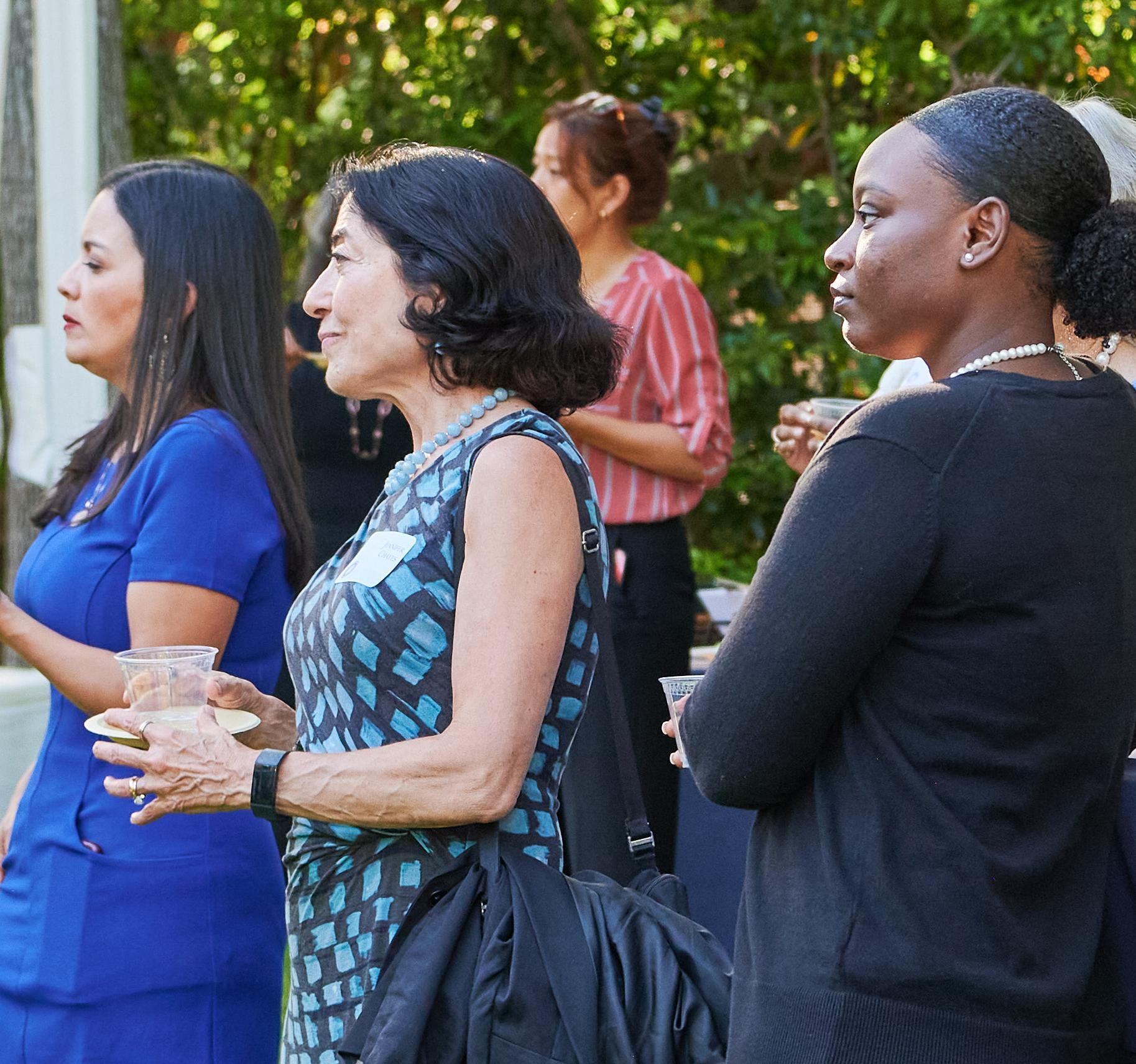
President Morris noted Tuskegee’s pioneering legacy as a top historically Black college and university (HBCU), including a track record for excellence in STEM fields. “We want to go beyond that legacy and take Tuskegee to the next level in terms of technology, in terms of what’s going on in the world today, so that our students will be marketable when they go across that stage at graduation,” she said.
On June 28, faculty at both universities discussed the collaboration at the National Workshop on Data Science Education in both online and in-person sessions on the Berkeley campus.
The Berkeley-Tuskegee Data Science Initiative events this summer are the culmination of two years of conversation and planning. In 2021, Google contributed $5 million to Tuskegee University in support of STEM initiatives, including the development of a data science program. The initial phases of the initiative are funded by part of this contribution.
Deborah Nolan, emeritus professor of statistics and associate dean for faculty at the Division of Computing, Data Science, and Society (CDSS), was involved in the project from the outset. She and collaborators at Tuskegee and Berkeley have been exploring what shape educational and research collaborations could take between the two universities. Nolan said the initiative’s events last week were both a launch and a celebration of this shared endeavor.
Strengthening social science contexts in Data 6
Nolan has met weekly for a year with faculty in electrical engineering, computer science, sociology and bioethics to collaborate on the course “Computational Thinking for Data and Society,” an updated version of Berkeley’s Data 6. Her collaborators include Berkeley's Lisa Yan and Charis Thompson and Tuskegee's Vivian Carter, Mandoye Ndoye, Yasmeen Rawajfih and Stephen Sodeke.
Data 6 was conceived of as another on-ramp to Data 8 – a foundational course for the data science major – that would engage students with real-world examples, give them practice with computing and also satisfy the social science breadth requirement. Many at Berkeley were involved in the course development, including Ani Adhikari, faculty director of pedagogy for Data Science Undergraduate Studies, Cathryn Carson, chair of the Department of History, Dave Harding, faculty director of D-Lab, and Eric Van Dusen, lecturer for Data Science Undergraduate Studies.
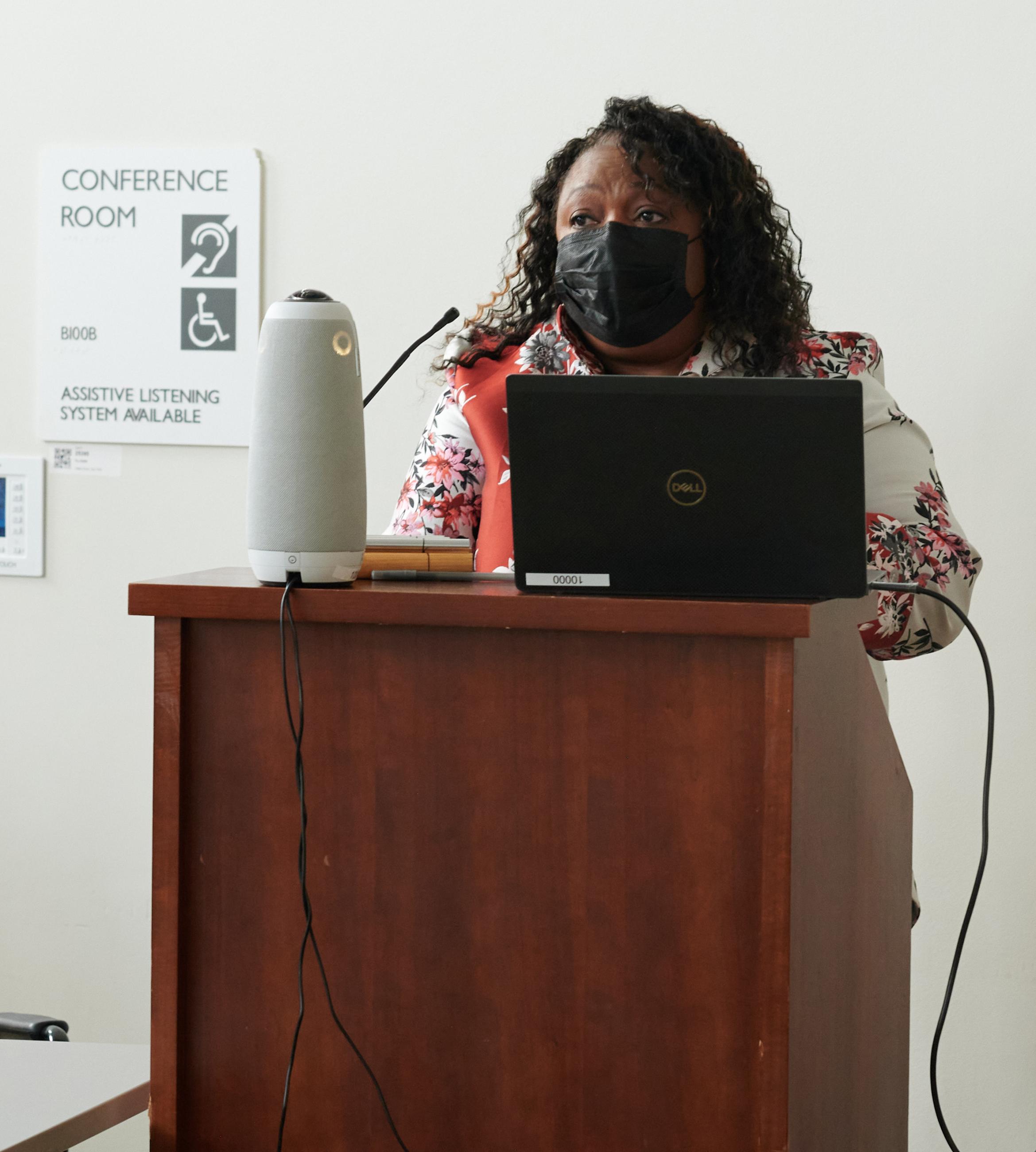
The course helps include a broader range of students in the data science ecosystem, said Suraj Rampure, lecturer in the Halıcıoğlu Data Science Institute at UC San Diego. Rampure helped to develop the earlier iteration of Data 6 as a master’s student in electrical engineering and computer sciences at Berkeley and is also contributing to the update.
Nolan said the partnership with Tuskegee creates an opportunity to further develop the course as a collaboration between social scientists, computer scientists and statisticians in order to teach thinking that is foundational to both social science and data science.
Vivian Carter, head of the Department of Psychology and Sociology at Tuskegee, said she is most excited by the interdisciplinary nature of this new curriculum. “As social scientists, we understand how technology changes our society, how it changes our interactions and the significance of our interactions,” she said. “From a more psychological standpoint, we can also talk about how technology changes individuals.”
Data 6 has been part of the Summer Rising curriculum for the SEED Scholars Honors Program for the past two years. Summer Rising provides support and opportunities for historically marginalized undergraduate populations studying STEM fields in the summer before their first semester at Berkeley. SEED scholars will be enrolled in Data 6 with the Tuskegee Scholars this summer, and Ira Young, program director for the SEED Scholars, was part of a Berkeley delegation that visited Tuskegee in March.
“I hope Data 6 will help students feel a sense of belonging in data science,” said Lisa Yan, an assistant teaching professor for electrical engineering and computer sciences and a collaborator on the Data 6 revision.
Envisioning a new data science program
As Tuskegee leadership begins to implement their own data science program, Tuskegee Scholars will play an active advising role. Additionally, teams of Tuskegee and Berkeley students will work on projects this summer that will feed into the development of Data 6.
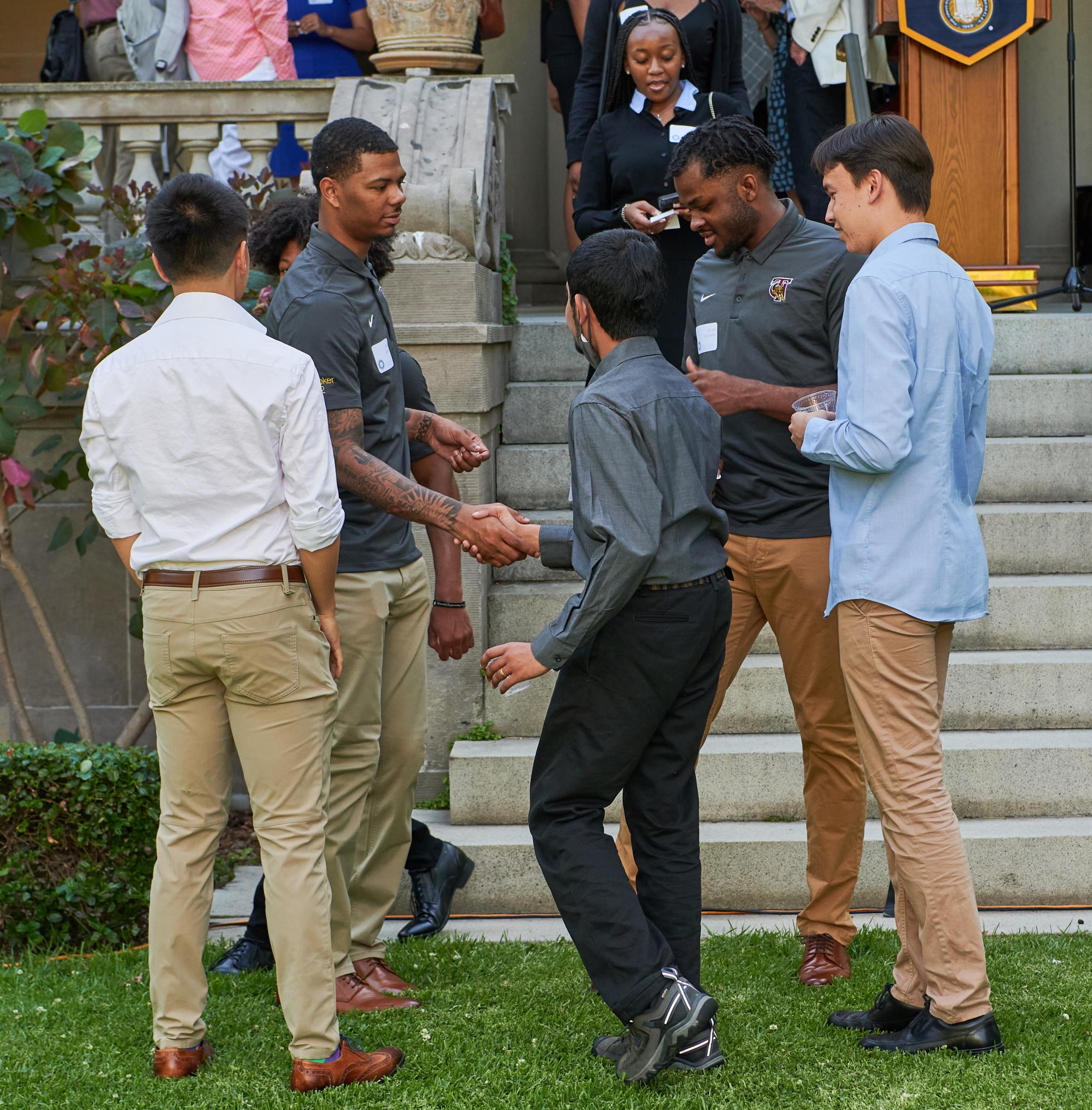
“I’m so glad we’re starting with the students and getting their buy-in,” said Carter. “From their experience and their disciplines, what kind of datasets are they interested in and how do they want to utilize those datasets?”
Bianca Alcéna, a Tuskegee Scholar enrolled in Data 6, already has a sense of how she would like to apply data science to her field of psychology. “I see how social media affects people from my viewpoint, but I’d like to see it on a macro level. I think using quantitative data to study social media will give me a whole new insight into it,” she said.
Alcéna added that she was excited by the challenge of learning a new field and helping implement a data science program. “I feel like this experience, altogether, will be life-changing,” she said.
Another Tuskegee Scholar, Devin Booker, majors in communication but brings a background in computer science to Data 8. After graduating, he intends to play basketball professionally overseas but plans to return to school later to complete a degree in cybersecurity.
“Even though my major is communication, I feel like my background can help me explain how data science can help the Tuskegee curriculum and how it can help Tuskegee students,” said Booker.
“I’m very optimistic that we will have an innovative and transformative program. And it will be student-led and driven,” said Carter.
Creating collaborative research and teaching opportunities
This fall, Data 8 will be offered at Tuskegee in a course co-taught by faculty at both universities and synchronized with a Berkeley Data 8 offering so that Tuskegee students can attend lectures online. Undergraduate student instructors from Berkeley will visit Tuskegee at the start of the semester to meet students, and then work with them remotely. Nolan believes these experiences will help student instructors create more inclusive classrooms at Berkeley as well.
Nolan said she hopes to offer the updated Data 6 in spring 2023 as a hybrid course with Tuskegee and Berkeley students. And, in summer 2023, she expects the initiative will launch an undergraduate research program. There are also plans underway to facilitate collaborative research between faculty at the two universities.
At workshop panels on June 28, Berkeley and Tuskegee faculty discussed the many ways that both universities stand to gain from the partnership.
Speaking of the Tuskegee Scholars, Carter said, “I see the students gaining skills and opportunity and access that we might not have on a smaller campus. But at the same time, I see the institution benefiting from the perspectives of the students.”
Realizing equitable and inclusive data science education at scale
“A school with only 3,000 students has disproportionately contributed to the number of African Americans with PhDs,” said S. Keith Hargrove, provost and senior vice president of academic affairs at Tuskegee, speaking in a workshop panel. He noted Tuskegee’s tremendous contributions across many fields and spoke of the university’s plans to develop a data science program.
Tuskegee University initiated a conversation two years ago with Jennifer Chayes, associate provost at CDSS, about creating pathways for Tuskegee students to study data science at Berkeley.
In another workshop discussion, Chayes urged the importance of bringing all voices to the table. “Our data science program is now 50% women, which is amazing and wonderful. But we are still not doing nearly as well with minoritized students,” said Chayes.
Without these voices at the table, “the technologies that we build are not going to be the right technologies,” she said, emphasizing the importance that diverse voices play in developing solutions that address rather than further bias and inequality.
Chayes added that while the strides made at Berkeley are important, real social impact is achieved through collective efforts made within the educational community. Addressing the educators at the workshop, she said, “This activity right here means we’re educating at scale. It’s not 700 to 800 graduates a year in data science, it is our shared platforms or shared curriculum with all of you.”
Chayes also expressed her excitement about the partnership with Tuskegee, praising the university for its effective practices that expand opportunities for minority students and its existing research and curriculum combining social science data and intersectional identity.
